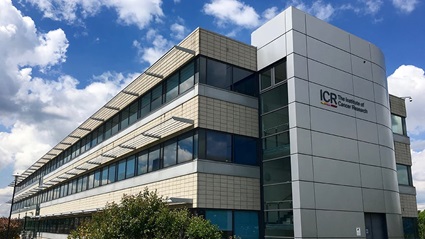Our discovery of the BRCA2 cancer gene
In 1995, our researchers discovered the cancer gene BRCA2, which, when mutated, can make carriers more likely to develop cancer. This discovery means that families can now assess their cancer risk through genetic testing.
Some people with BRCA mutations can be closely monitored or choose to take preventative measures, such as actress Angelina Jolie.
25th anniversary
On the 25th anniversary of our discovery of the BRCA2 gene, we’ve compiled news stories, blog posts and videos on our pioneering research into BRCA genes. Join the conversation on Twitter: #BRCA2Anniversary
What are the BRCA genes
BRCA1 and BRAC2 are genes that we all carry. These genes normally protect us against cancer. But if you inherit mutations of these genes - ‘faulty’ versions that don’t work as they should - this increases your risk of developing cancer.
People with mutations in BRCA1 and BRCA2 genes are at increased risk of developing certain cancers, including:
- breast cancer, in women and men
- ovarian, fallopian tube, prostate, pancreatic and lung cancers, and
malignant melanoma.
Cancer prevention and treatment
Our research into BRCA genes has led to discoveries for cancer prevention and treatment. This includes better diagnostic and risk testing, the development of a new class of drugs and new targeted therapies for related cancers.
Related pages
Latest ICR News

ICR rated one of UK’s leading academic centres for industry collaboration and commercialisation
The Institute of Cancer Research has ranked among the top UK universities for research partnerships and commercialisation.

Legendary jockey Bob Champion awarded honorary doctorate at ICR graduation ceremony
Legendary jockey Bob Champion has been awarded an honorary doctorate by The Institute of Cancer Research, London, in recognition of his outstanding contribution in supporting research into male cancers at a ceremony at London’s Guildhall.